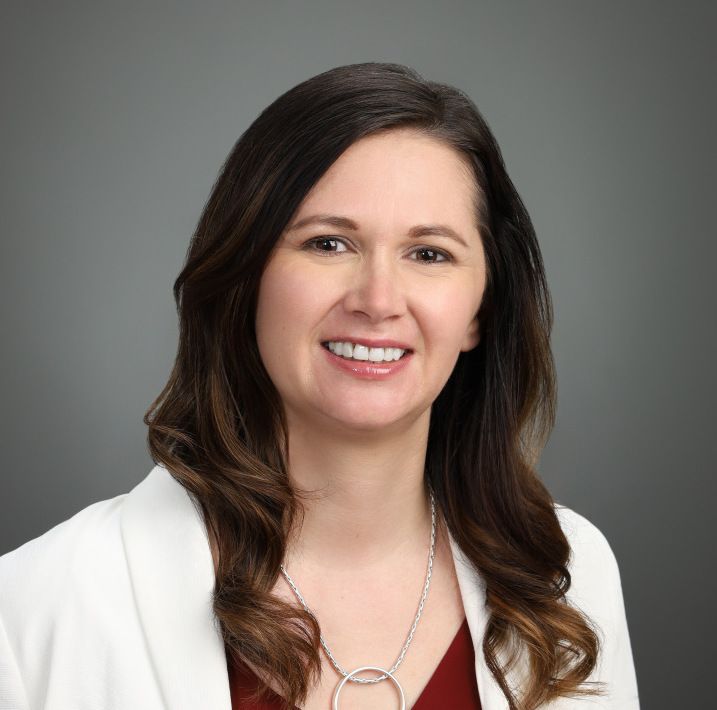CUP Graduate Student Equity Award Profile: Megan MacNeil
28 February 2023

“As researchers and people, we must continue to recognize how our own experiences, identities, and privileges shape the work we do. This helps us to open ourselves to the experiences of others, check our biases, and listen with respect and intention.”
This article is part of a series highlighting the recipients of the Graduate Student Equity Award offered by the Community-University Partnership (CUP) in the School of Public Health. The award supports graduate students pursuing community-engaged research and is made possible with funding from the Suncor Energy Foundation.
Megan is a second-year Ph.D. student in the School of Public Health’s general public health stream, where her research focuses on children’s sleep health and the role that different partners play in supporting children and youth to sleep well.
“We know that not getting enough sleep impacts all areas of a child’s growth, development, and wellbeing and that at least 30% of children are not getting the recommended amount of quality sleep. My research aims to identify the factors that impact sleep health in children and youth and how different partners such schools, communities, and healthcare providers can work together to better support families.”
Alongside her studies, Megan is involved in several projects through SIRCLE, a research lab founded by Dr. Kate Storey that focuses on school- and community-based health promotion, including the Sleeping Soundly project that aims to improve sleep promotion in schools. She also works part time as a knowledge broker for Solutions for Kids in Pain, a national knowledge mobilization network that takes a collaborative approach to moving evidence generated through research into policy and practice to improve children’s pain management.
Megan took, as she puts it, a “winding road” to her Ph.D. program, which comes on the heels of a career in the healthcare sector. Her journey began while she was an undergraduate student at McMaster University in Ontario and landed a job as a registered polysomnographic (sleep) technologist, an experience that inspired her interest in the science of sleep and holistic approaches to health.
“Many patients had sleep disorders that required proper diagnosis and treatment in the sleep clinic setting. But I was also seeing how healthy sleep extended beyond the presence or absence of a medical diagnosis. Sleep health is multi-dimensional and extends beyond individual and behavioural factors to include a complex interplay of the social determinants of health.”
After earning a master’s degree in public health from the University of Waterloo, Megan went on to work in administrative and management-level positions within the sleep field. Later, her focus shifted to digital health and working with clinicians and communities to adopt digital tools as the Ontario government was rolling out its eHealth platform. A non-profit that Megan played a key role in developing eventually became the eHealth Centre of Excellence.
After Megan moved to Alberta, returning to graduate school was an opportunity to connect with a new community. As a Graduate Student Equity Award recipient, Megan is participating in CUP’s community of practice sessions, which she says offer a safe environment to share ideas about community-based research with students who bring diverse perspectives. The sessions also help her reflect on how equity, diversity, and inclusion (EDI) impact her own work. This experience has deepened her understanding of not only her own multi-faceted identity but the importance of incorporating intersectionality into her research and knowledge translation work in a meaningful way.
“My graduate program and involvement in CUP have encouraged me to reflect on EDI in a different way. As someone who identifies as a woman, I have certainly faced professional situations where traditional gender stereotypes led to perpetual inequities in the workplace. Even though biases like these might be unconscious, they have lasting impact, and we need to talk about them more.
“In my situation, I continue to think about how to unpack how my own identity and my privileges, and how this influences not only who I am as a researcher but also as a parent, a partner, and a professional.
“As researchers and people, we must continue to recognize how our own experiences, identities, and privileges shape the work we do. This helps us to open ourselves to the experiences of others, check our biases, and listen with respect and intention.”
Megan suggests the approaches and methods used within community-based research have something to offer the university at large when it comes to taking action on EDI.
“Many people in the post-secondary space have the expertise to conduct valuable community-based research. When we talk about this type of work, we discuss the importance of reducing power imbalances, creating trusting relationships, engaging early in the process, and seeking and listening to people with perspectives different from our own.
“In post-secondary institutions, which are communities in and of themselves, how can we move beyond the important first step of integrating principles of diversity to creating an inclusive culture where all students, faculty, and staff can participate in their work environment and have fair access to programs, opportunities, funding, and services? Like community-based approaches to research, the university’s work to advance EDI needs to be built on a foundation of trust, intention, respect, and equitable partnerships.”